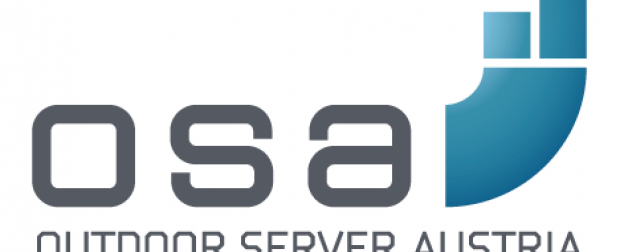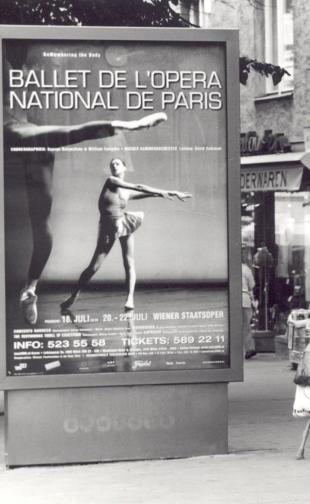
2023
Dank OSA können reale Blickzuwendungen auf Gewista Werbeträger erfasst werden. Seit 2023 gibt es die OSA neu, die nun auch digitale Werbeträger erfasst. Dies ermöglicht die Buchung auf Basis von Bruttokontakten und TKPs.

2022
Gewista schlägt mit seiner ersten Programmatic Out of Home-Kampagne gemeinsam mit dem führenden digitalen Out of Home-Marktplatz VIOOH und MediaCom ein weiteres wichtiges Kapitel im Rahmen seiner Digitalisierung auf. Die Coca-Cola Out of Home-Kampagne ist nicht nur ein ikonischer Eyecatcher, sondern auch die erste programmatic ooh Kampagne bei Gewista. Der Getränkekonzern nutzt die neuen, programmatischen Möglichkeiten, um sich einen reichweitenstarken Kampagnenstart für das Produkt Coke Zero zu sichern.

2021
Seit September 2021 haben Werbetreibende in den beiden größten Shopping-Centern Österreichs, die Möglichkeit, Ihre Marke mittels neuer Digitaler City Lights an höchst frequentierten Standorten zur Zielgruppenansprache unmittelbar am POS impactstark in Szene zu setzen. Die Möglichkeit der ganzheitlichen Zielgruppenansprache schon bei der Anreise und unmittelbar vor dem Store deckt alle Touchpoints des Kunden mit der Marke effizient ab und wirkt sich dadurch positiv auf Markenimage und Kaufentscheidung aus. Almdudler setzt als First Mover auf dieses innovative und ganzheitliche Konzept und bietet seiner Zielgruppe im Rahmen der „Almdudler Wanderlust“ Kampagne ein bis dato einzigartiges Customer-Journey-Erlebnis im Out Of Home-Bereich.

2020
Im Frühjahr 2014 startete die Gewista - vorerst in Wien - mit der Erschließung von digitalen City Lights. Der Fokus lag im ersten Schritt auf den sieben größten Wiener U-Bahnstationen, weitere 18 Stationen kamen hinzu. Über die U- Bahn Bereiche hinaus wurden an hochfrequentierten Standorten in top City-Lagen in Wien, Salzburg, Graz und Linz digitale City Lights erbaut. Neu im Portfolio sind nun die Landeshauptstädte Klagenfurt und Bregenz. Die Gewista - mit Ihren Partner PSG in Klagenfurt und der Progress Werbung in Salzburg - hat somit sechs von neun Landeshauptstädten mit digitalen City Lights erschlossen.

2023
Gewista erweitert das Portfolio um das neue Premium Board. Aufbauend auf den Erfolg der City Lights gibt es nun ein ähnliches Prinzip im Großformat auf bis zu 3,5 Metern Höhe: Das Premium Board ist hinterleuchtet sowie hinterglast und hebt sich von klassischen Werbeformen ab. Durch diese Eigenschaften sorgen sie für zusätzliche Aufmerksamkeit und können wöchentlich gebucht werden.

2022
Österreichs Out-of-Home-Marktführer Gewista kündigt mit den neuen Digitalen Premium Screens eine weitere Innovation am Werbemarkt an. Der Aufbau der ersten Standorte erfolgt im zweiten Halbjahr 2022, geplant sind 200 nationale Umrüstungen der bisherigen Rolling Boards auf digitale LED-Flächen. Das eröffnet für Werbetreibende eine zusätzliche Möglichkeit der Buchung von Gewista-Werbeflächen.

2021
Im Jahr 2021 durften wir 100 jährigen Geburtstag feiern. 100 Jahre Gewista bedeutet 100 Jahre Außenwerbung, 100 Jahre Plakat aber auch Innovation, Fortschritt und Digitalisierung. In den Vielen Jahren, in denen es die Gewista schon gibt, hat sich viel im Bereich der Außenwerbung getan und verändert. Immer am Puls der Zeit hat sich das Unternehmen und dessen Werbeträger angespasst
Schauen wir was die nächsten 100 Jahre bringen.
2015-2018
Gewista today.
2018
KulturPlakat becomes KULTURFORMAT and is offering, with Daniela Grill as managing director, all services of the previous Gewista unit “Arts & Culture” in one location.

2016
Citybike launches the new website citybikewien.at and from that date on it is possible to login via mobile devices. In this year Gewista and Progress are also jointly assuming the marketing of the Innsbrucker Verkehrsbetriebe.

2017
Franz Solta assumes the position as CEO from Karl Javurek. Salzburg starts with digital Out of Home advertising and builds up 11 locations in Salzburg’s city centre. Shortly after that, Graz is following by establishing 9 Digital City Lights and at the end of the year Linz gets digital by positioning 13 digital screens. In addition Gewista founds the project “metro network 1 & 2”.

2015
In November Gewista starts to equip Vienna’s biggest shopping street called Mariahilfer street with Digital City Lights. Also the deluxe net with 10 locations is built up in inner-city hotspots of Vienna.
2009-2014
Efficiency, technology & internationality.
2014
A new area of Out of Home begins: Vienna’s most important metro stations get equipped with high resolution screens so called Digital City Lights, which transform the stations in digital product worlds. The digitalization is accompanied by new pioneering business models, which are extending the digital room into outdoor advertising.

2014
Besides this the semimonthly rhythm is replaced by a 14-days posting rhythm for billboards with a fixed start date. From that time on the fixed affixation day is every second Monday, which simultaneously is the starting day of campaigns in other Out of Home media and is therefore accumulating the advertising pressure.

2013
A new era of Out of Home efficiency measurement starts: Since the 1st of January 2013 there exists the Outdoor Server Austria (OSA) in Austria, which enables inter- & intramedial as well as international comparable performance values for Out of Home media. OSA data is going to be the new lead currency for the planning and analysis of Out of Home campaigns.

2012
Gewista/JCDEcaux group used the opportunity to extend the Eastern Europe portfolio consisting of Slovenia, Slovakia, Serbia, Montenegro, Poland, Czech Republic, Croatia and Bulgaria by acquiring the Hungarian shares.

2014
The digitalization of media, like City Lights or Rolling Boards is the next logical step, which Gewista as a pioneer of the Digital Out of Home advertising sector is going to take. Furthermore the first public defibrillator in a Digital City Light is introduced in 2014.

2013
Citybike Vienna is celebrating its 10th birthday. 10 years ago Gewista and Citybike Vienna have been jointly founding the first sustainably successful free citybike rental system, which is actually used by about 500.000 people. The citybike system of Gewista has also been exported globally into approximately 60 metropolises.

2012
Gewista acquires 100% of the Hungarian shares of EPAMEDIA from JOJ Media House and is the number one supplier of Out of Home advertising in Eastern Europe. Previously JOJ Media House has acquired all shares of EPAMEDIA from Raiffeisen.

2009
Gewista expands its Competence Centre to include Innovative & Ambient Media offering technical implementation, creative approaches and innovative ideas in response to an ever increasing demand for novel Out of Home advertising forms.
2005-2008
Expansion & developement.
2007
Founding of Kultur:Plakat GmbH in October. The 70% Gewista subsidiary has been founded after a successful long-term pilot phase.

2006
Gewista forges new paths in the field of Transport Media and establishes the first Total Look advertising and experience landscapes in Europe in the form of "Station Branding" in Vienna's metro system - triggering an enormous positive response among recipients and the advertising industry

2005
Expansion of the Rolling Board network and City Light orchestrations: transformation of waiting shelters into multi-dimensional experience landscapes. Expansion of the Citybike network and installation of Rolling Boards in other Austrian regional capitals. Vienna's Ringstrasse is fitted with backlit columns – a new, high-quality cityscape begins to take shape.

2007
Further expansion into Austria’s federal states: Founding of PSG - Poster Service GmbH in cooperation with Stadtwerke Klagenfurt AG. Rolling Board Austria GmbH is founded as a joint venture between Gewista subsidiary USP and Werbering, thereby closing the last gaps in Austria's national Rolling Board network that is finally completed at the end of the year.

2006
The company acquires the exclusive sales rights to advertising spaces on more than 2,000 Austrian buses at the beginning of the year – a further boost to growth. In addition, 100 historic advertising columns along the Ring are replaced by rotatable, backlit City Light columns which have since added modernity and new life to Vienna's most history-laden street.
2001-2004
Gewista an international company.
2004
FEPE president KR Karl Javurek organises the world congress in Dubai that opens up new prospects for the future of Out of Home advertising. Gewista also establishes a new dimension to Out of Home in Austria: 330 Rolling Boards are installed at heavily frequented locations virtually overnight. The dynamic Rolling Board with its changing motifs will become Gewista's most successful product.

2002
JCDecaux acquires shares in B&C Holding and becomes the majority shareholder in Gewista. The company is now an integrated component of the world's largest urban furniture network and the largest Out-of-Home enterprise in Europe. Gewista launches a quality offensive for the City Light to reposition the medium that is rapidly becoming a top seller.

2003
Gewista develops the "Citybike Vienna" concept for the city of Vienna and presents a complex electronic system that is subsequently adopted by other cities.

2001
Vienna becomes a major hub for the Decaux Group. The company's expansion into the economic areas of Central and eastern Europe is managed by Gewista and its subsidiaries.
1991-2000
Gewista is growing.
2000
Gewista launches its Culture City Lights. This special category consists of around 150 City Lights at top locations in Vienna's 1st district in places such as Kärntner Strasse, Kohlmarkt or Tuchlauben, and made available exclusively for advertising cultural events.

1996
Gewista acquires advertising company Progress Werbegesellschaft. The additional billboard surfaces in Austria's regional capital cities further expand the national network. The company also enters into a partnership with APG, Switzerland's largest outdoor advertising company, within the scope of Europlakat International.

1998
Founding of Infoscreen Austria GmbH for electronic advertising in Vienna's metro system. Gewista enters the era of electronic outdoor advertising.

1993
Bank Austria acquires the majority shareholding in Gewista.
1921-1990
Everything starts.
1990
Gewista acquires Hungarian company Europlakat in cooperation with Mahir and Budapest's Municipal Asset Management, thus laying the cornerstone for its internationalisation. Subsidiaries are founded in Prague and Bratislava in the same year.

1974
Gewista is outsourced from the city's urban administration and integrated in the newly founded Wiener Holding. Wiener Holding holds a 51% interest in Gewista. The remaining shares are allocated to Progress Werbung and IWG.

1976
Gewista installs its first advertising showcases in conjunction with the development of the pedestrian zone in Favoritenstrasse. This is the kick-off for a new type of advertising carrier named urban furniture; City Lights have meanwhile become its most visible form.

1921
Gewista is founded as an administrative department of the City of Vienna. Its main role is the commercialisation of advertising on public transport.
